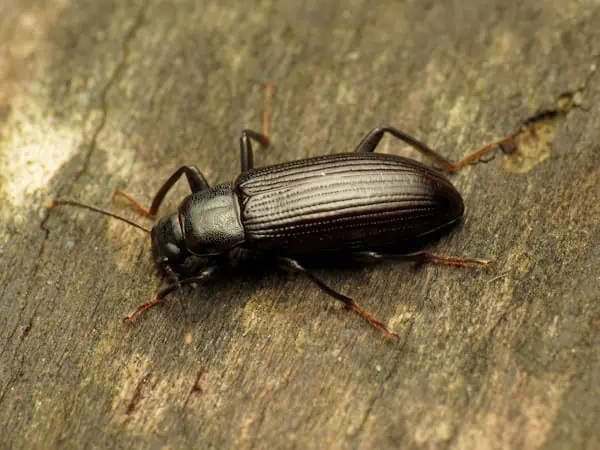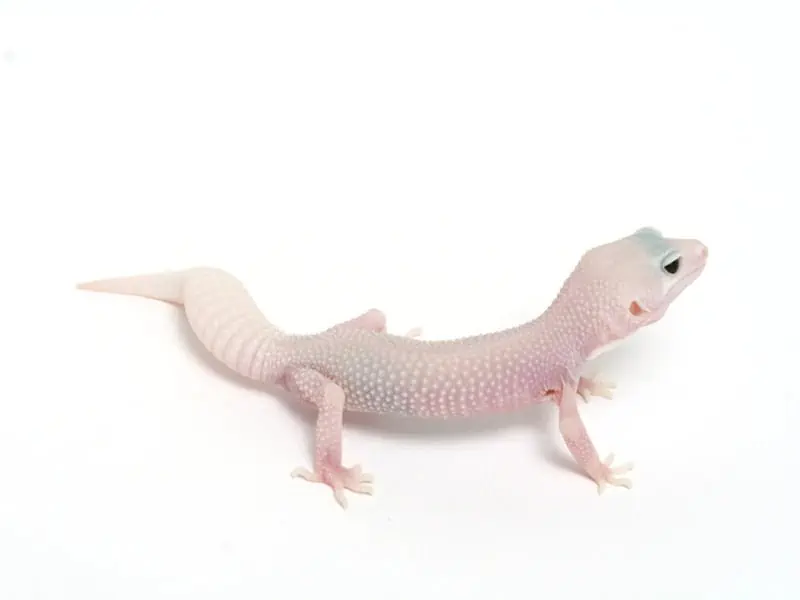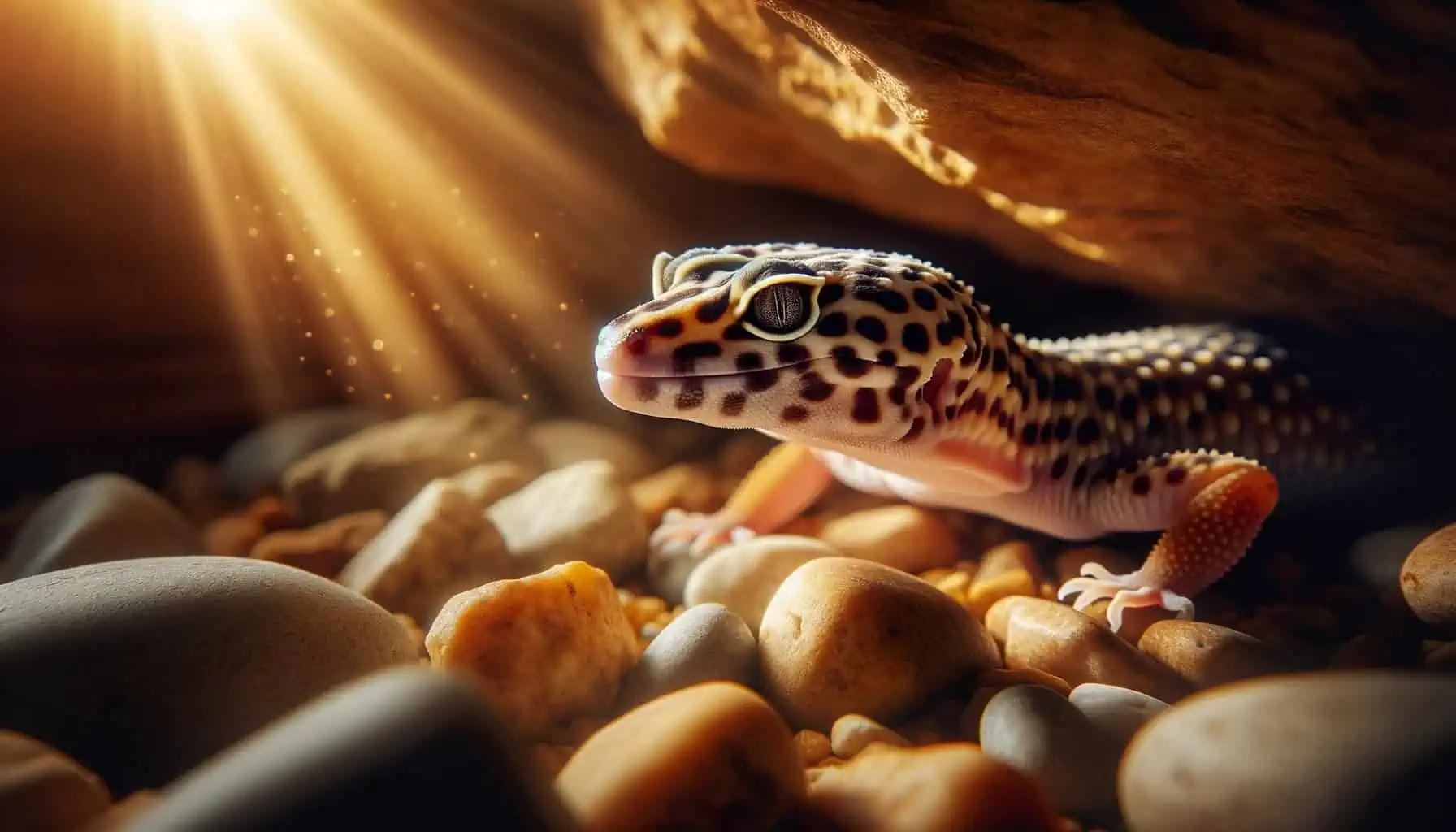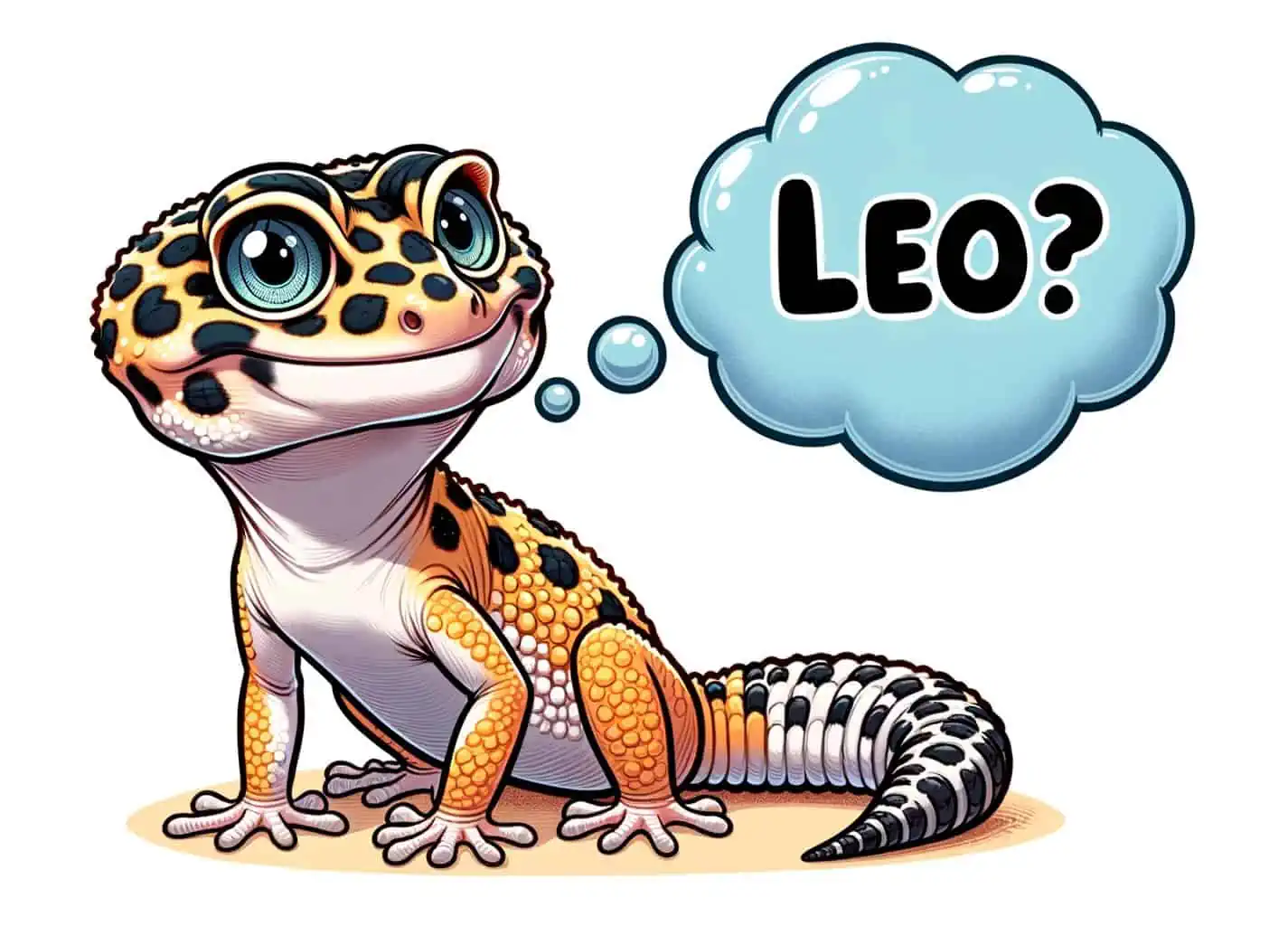Leopard geckos can indeed eat darkling beetles. They’re not just an intriguing insect with fascinating characteristics but also can be a nutritious component of a leopard gecko’s diet.
Can Leopard Geckos Eat Darkling Beetles?
Absolutely, leopard geckos can eat darkling beetles. These insects not only offer a nutritious meal packed with essential proteins and vitamins but also bring about several benefits to the gecko’s environment.
What are Darkling Beetles?
Darkling beetles, scientifically known as members of the Tenebrionidae family, are an intriguing class of beetles, both in appearance and function. One of their most defining characteristics is their tough exoskeleton, which can range from a matte black to a dark brown hue. This hardy exterior not only provides them with protection but also distinguishes them from other beetle species.
Now, when we talk about mealworms, those wriggly, worm-like creatures that are often used as feed for reptiles, it’s essential to understand that these are just the larvae.
The adult stage of these mealworms metamorphoses into what we know as the darkling beetle or mealworm beetle. This transformation, from larva to adult beetle, is a fascinating process and highlights the complex life cycle of these creatures.
Geographically speaking, darkling beetles are not limited to just one region. Their prevalence spans across various parts of the world, making them accessible to many reptile enthusiasts and breeders.
Whether you’re in North America or parts of Europe, it’s likely you’ll come across these beetles either in the wild or in pet stores.
Beyond their intriguing life cycle and wide prevalence, darkling beetles are not just crawling creatures; they offer significant nutritional value. For leopard geckos, these beetles can be a veritable feast. They are packed with protein, a vital component for muscle growth and tissue repair in geckos.
Additionally, darkling beetles are a source of vitamin A, crucial for maintaining good vision, growth, and immune functions in leopard geckos.
But the benefits of introducing darkling beetles into your leopard gecko’s life aren’t limited to nutrition alone. In gecko enclosures, these beetles play a pivotal role. Their nature to scavenge means they assist in tank cleanliness by breaking down waste material.
This not only keeps the enclosure clean but also reduces the risk of mold and fungi growth. Moreover, darkling beetles can assist in controlling unwanted pests. Their presence can deter or reduce the number of smaller pests, ensuring a healthier and more balanced environment for your gecko.
Are Darkling Beetles an Essential Part of a Leopard Gecko’s Diet?
When considering the diet of leopard geckos, variety is key. While darkling beetles might not be labeled as an “essential” food source, they indeed play a pivotal role in providing essential nutrients.
Their robust nutritional profile, rich in protein and vitamins, offers leopard geckos a nourishing treat that can aid in their overall health and growth.
Darkling beetles stand out particularly for their protein content. Protein is crucial for leopard geckos, assisting in muscle development, tissue repair, and overall energy.
Incorporating a source of protein like darkling beetles ensures that your gecko remains active and healthy. But it’s essential to note that solely relying on darkling beetles might not provide a well-rounded diet for your pet.
For a truly balanced diet, it’s recommended to introduce a variety of suitable food options. Some of these include crickets, waxworms, silkworms, and roaches.
Each of these food items brings its unique set of nutrients to the table. By offering a mix, you ensure that your leopard gecko gets a comprehensive range of vitamins, minerals, and other necessary dietary components.
Are Darkling Beetles a Source of Protein?
Darkling beetles, with their sometimes off-putting smell and aggressive nature, might not seem like the ideal food choice at first glance.
However, when it comes to nutrition, these beetles are a powerhouse, particularly as a source of protein for leopard geckos. Their strong odor and behavior are mere quirks in the face of the nutritional benefits they provide.
Protein plays a fundamental role in the diet of leopard geckos. It’s essential for muscle growth, tissue repair, and even contributes to the overall energy levels of the gecko. Every bite of a protein-rich food like a darkling beetle contributes to the strength, agility, and vitality of the gecko.
Protein intake is so central that without it, leopard geckos can face numerous health challenges ranging from lethargy to muscle wastage.
However, as with all dietary components, balance is crucial. While darkling beetles offer an excellent protein source, they should be a part of a broader, balanced diet.
Ensuring that leopard geckos receive a mix of nutrients, not just protein, is fundamental for their overall health, longevity, and well-being. A diversified diet helps in preventing nutritional deficiencies and ensures the gecko remains vibrant and healthy throughout its life.
Should You Feed Wild-Caught Darkling Beetles to Your Pet Leopard Gecko?
Venturing into the great outdoors and catching darkling beetles for your pet leopard gecko might seem like a natural and cost-effective feeding solution. However, it comes with its set of risks and considerations.
Wild-caught darkling beetles can introduce a plethora of potential dangers to your gecko, making it essential to approach this feeding method with caution.
One of the primary concerns with wild-caught insects is the transmission of potential diseases. These beetles might carry parasites, bacteria, or other pathogens that can be harmful, if not lethal, to leopard geckos. When introduced into the confined space of a gecko’s enclosure, these pathogens can quickly spread, putting your pet’s health in jeopardy.
Additionally, the nutritional value of wild-caught beetles can be a gamble. Unlike beetles bred for feeding purposes, wild beetles might lack the necessary gut content that provides essential nutrients to your gecko. This lack of nutritional value not only deprives your pet of vital vitamins and minerals but can also lead to long-term health issues.
So, if wild-caught darkling beetles are not recommended, what are the alternative options for providing essential nutrients to your gecko?
Captive-Bred Insects: Opt for beetles that have been bred in captivity specifically for feeding purposes. They are usually gut-loaded, ensuring they provide all the essential nutrients to your gecko.
Commercially Available Gecko Food: Many brands offer specialized food for leopard geckos, ensuring a balanced diet with all the required vitamins and minerals.
Diversify the Diet: Incorporate a range of insects like crickets, roaches, and silkworms. Each offers unique nutritional benefits, providing a balanced intake of essential nutrients.
Supplements: Consider adding calcium and vitamin D3 supplements to your gecko’s diet, ensuring they receive all the nutrients they need for bone health and overall vitality.
How Should You Prepare Darkling Beetles for Your Pet Leopard Gecko?
Feeding your leopard gecko darkling beetles can be a nutritious treat for them. However, it’s not as simple as just scooping them up and offering them to your pet.
Proper preparation is crucial to ensure these beetles are a beneficial addition to your gecko’s diet.
To begin with, gut-feeding is essential. Gut-feeding, or gut-loading, is the process of feeding nutritious foods to the beetles before they are given to your gecko.
This ensures that the beetles are filled with vital nutrients that your leopard gecko can benefit from. When a beetle consumes nutrient-rich foods, those nutrients are then passed on to your gecko when it eats the beetle.
When it comes to what you should feed the beetles for optimal gut-feeding, a variety of vegetables are ideal.
Carrots are excellent as they are filled with vitamins and can boost the beetle’s hydration.
Spinach offers a good dose of calcium, vital for gecko bone health.
Potatoes are starchy and can be a good energy source, while oats can provide essential fibers.
Offering a mix ensures the beetles are nutritionally enriched, making them a powerhouse of nutrients for your gecko.
Breeding your own darkling beetles can give you more control over their diet and overall health. When you’re breeding, it’s essential to maintain the right conditions for their optimal growth. Beetles thrive when the temperature is kept between 70°F to 80°F (21°C to 27°C).
Proper humidity is equally important. A moisture level of around 60-70% can create an ideal environment for darkling beetles, ensuring they grow healthily and are filled with the nutrients your leopard gecko needs.





